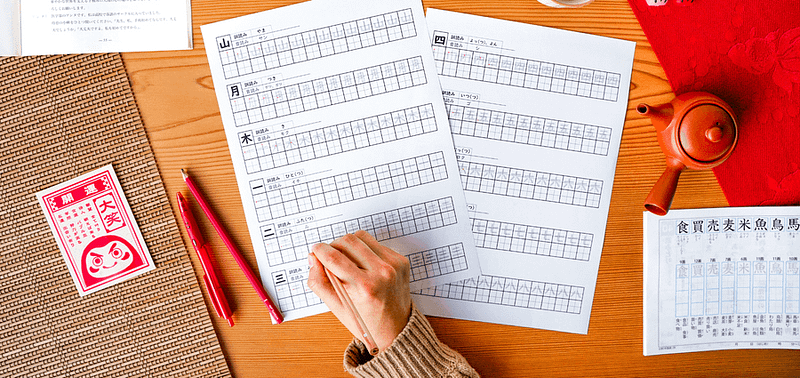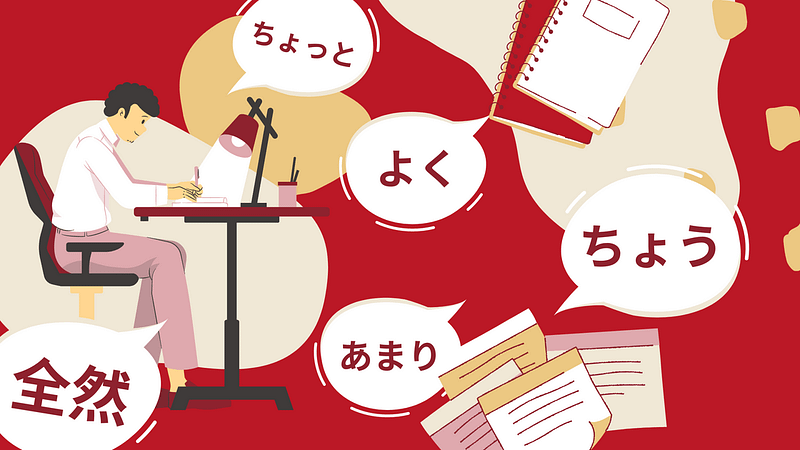Expressing love in Japanese is probably very different to where you’re from, particularly if you come from a western society. If you’re familiar with Japanese culture, you’ll know that a lot of the language is indirect and directly telling someone you love them isn’t as common as it is in the west. Rather, it’s more common to show someone how you feel through your actions, rather than verbalising your feelings. This goes as much for familial and friendship love, as it does for romantic love.
How, then, do you tell someone you love them in Japan without committing a social faux pas? Read on to learn all about expressing your love in Japanese.

“Love” in Japanese
There are two words for “love”, but they are used differently when expressing love in Japanese. The first is ai 愛, which is a more general word for love and encompasses romantic love, as well as love for your friends, family, your possessions, etc.
Some words you will see 愛 in include:
Kawaii 可愛い – cute
Aishō 愛称 – pet name or nickname
Mederu 愛でる – to cherish, admire
The second word is koi 恋, which refers specifically to romantic love. For example, you will see this character in words such as:
Koibito 恋人 – lover, significant other
Koiuta 恋歌 – love song
Hatsukoi 初恋 – first love
There is a word written with both the characters for love: renai 恋愛. This means romantic love or falling in love. For example, a love marriage, as opposed to an arranged marriage, is called renai kekkon 恋愛結婚.
Sometimes the word rabu ラブ is used, which is the katakana of the English word “love”. For example, young people say they’re “rabu rabu ラブラブ” when they’re really fall head over heels in love with each other.

Phrases for expressing love in Japanese
There are a few phrases you can use to tell someone you love them, but remember to pay attention to the context to ensure you use the right one.
Kokuhaku 告白
Before you even think about how to declare your feelings in a romantic context, you should understand the culture of kokuhaku, or “confession”. This is when you “confess” your feelings for someone with the hopes of dating them.
When giving the confession, it’s normal to say, “tsukiatte kudasai 付き合ってください”, which means, “Please go out with me” or “Can we date?”
Tsukiaou 付き合おう means to “go out” with the implication of dating.
Without this confession, you’re not technically in an exclusive relationship with the other person.
Suki desu 好きです and daisuki desu 大好きです
“Suki desu” means “to like”, so if you take someone aside and tell them, “suki desu!” or “suki dayo!” (informal), then you’re saying you like them beyond just friendship.
A lot of the time in this context, this phrase is used to mean “I love you”, even if the English translation is “I like you”.
“Daisuki desu” means to really like or love something, so this has a similar effect as “suki desu”.
For example, if you are confessing your feelings for someone, you might say:
Suki desu! Tsukiatte kudasai.
好きです。付き合ってください。
I like/love you. Can we date?
Note that both suki desu and daisuki desu are commonly used more generally to express you like or love something, not just in a romantic context.
Aishiteru 愛してる
This technically means, “I love you” and can only be used in a romantic context. Whether you actually say it to someone is another story because in reality, this way of declaring love is very rarely used and is extremely serious.

Other ways to express love
There are plenty of other phrases you can use when expressing love in Japanese without actually saying, “I love you”. They’re not exactly declarations of love, but if you say them to the person you like, then it can help them realise your feelings for them.
Issho ni itai
一緒にいたい
I want to be with you.
Aitai
会いたい
I want to see you (or literally: I want to meet you).
Futari de ikō / issho ni ikō
二人で行こう / 一緒に行こう
Let’s go together.
For example, if the person you like is talking about wanting to go to an event, you can say:
“Futari de ikō”, or “issho ni ikō”.
If you want to make it more of an invite, you can say:
Issho ni ikimasenka?
一緒にいきませんか?
Would you like to go with me?

Japan’s unique dating culture
In addition to differences in culture and language, Valentine’s Day is also celebrated differently. It isn’t a day for men to express their love, but rather, it’s a day when women give gifts to show their love for people in their lives.
Typically, this takes the form of chocolate, of which there are three main categories:
- Giri choco 義理チョコ, or “obligation chocolates”. These are gifted to family members, acquaintances and colleagues and hold no romantic meaning.
- Tomo choco 友チョコ are given by women to their female friends.
- Honmei Choco” 本命チョコ are given to the person a woman has romantic feelings for.
If you’re wondering when it goes the other way, that happens one month later on March 14, or White Day. Read more about how Valentine’s Day and White Day are celebrated in Japan here.
Another interesting aspect of Japan’s dating culture is the concept of gōkon 合コン, or group dates. These are organised gatherings that bring single men and women together with the aim of matching people together romantically. Think of it like a group blind date!
Dating in Japan is quite different to most western cultures. Telling your significant other that you love them and public displays of affection aren’t as common amongst Japanese couples. It might seem a bit confusing at first, but we hope this article has helped clarify how you might go about expressing love in Japanese!
You can learn more Japanese expressions in our language articles, such as Japanese you can learn from anime. Read more about Japanese culture and society on our blog.
















